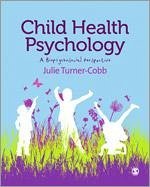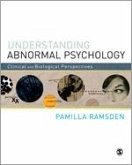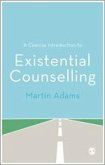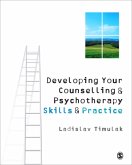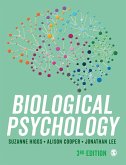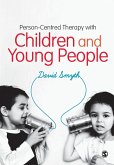- Broschiertes Buch
- Merkliste
- Auf die Merkliste
- Bewerten Bewerten
- Teilen
- Produkt teilen
- Produkterinnerung
- Produkterinnerung
With a perspective designed to both inform and to challenge, this stimulating textbook introduces students to the central relevance and many applications of child health psychology.
Andere Kunden interessierten sich auch für
![Health Psychology Health Psychology]() David F. MarksHealth Psychology202,99 €
David F. MarksHealth Psychology202,99 €![Understanding Abnormal Psychology Understanding Abnormal Psychology]() Pamilla RamsdenUnderstanding Abnormal Psychology74,99 €
Pamilla RamsdenUnderstanding Abnormal Psychology74,99 €![A Concise Introduction to Existential Counselling A Concise Introduction to Existential Counselling]() Martin AdamsA Concise Introduction to Existential Counselling38,99 €
Martin AdamsA Concise Introduction to Existential Counselling38,99 €![Developing Your Counselling and Psychotherapy Skills and Practice Developing Your Counselling and Psychotherapy Skills and Practice]() Laco TimulakDeveloping Your Counselling and Psychotherapy Skills and Practice51,99 €
Laco TimulakDeveloping Your Counselling and Psychotherapy Skills and Practice51,99 €![Biological Psychology Biological Psychology]() Suzanne HiggsBiological Psychology111,99 €
Suzanne HiggsBiological Psychology111,99 €![Person-Centred Therapy with Children and Young People Person-Centred Therapy with Children and Young People]() David SmythPerson-Centred Therapy with Children and Young People48,99 €
David SmythPerson-Centred Therapy with Children and Young People48,99 €![Existential Counselling and Psychotherapy Existential Counselling and Psychotherapy]() Darren LangdridgeExistential Counselling and Psychotherapy53,99 €
Darren LangdridgeExistential Counselling and Psychotherapy53,99 €-
-
-
With a perspective designed to both inform and to challenge, this stimulating textbook introduces students to the central relevance and many applications of child health psychology.
Hinweis: Dieser Artikel kann nur an eine deutsche Lieferadresse ausgeliefert werden.
Hinweis: Dieser Artikel kann nur an eine deutsche Lieferadresse ausgeliefert werden.
Produktdetails
- Produktdetails
- Verlag: Sage Publications Ltd
- Seitenzahl: 362
- Erscheinungstermin: 10. Dezember 2013
- Englisch
- Abmessung: 235mm x 191mm x 20mm
- Gewicht: 592g
- ISBN-13: 9781849205917
- ISBN-10: 1849205914
- Artikelnr.: 39130729
- Herstellerkennzeichnung
- Libri GmbH
- Europaallee 1
- 36244 Bad Hersfeld
- gpsr@libri.de
- Verlag: Sage Publications Ltd
- Seitenzahl: 362
- Erscheinungstermin: 10. Dezember 2013
- Englisch
- Abmessung: 235mm x 191mm x 20mm
- Gewicht: 592g
- ISBN-13: 9781849205917
- ISBN-10: 1849205914
- Artikelnr.: 39130729
- Herstellerkennzeichnung
- Libri GmbH
- Europaallee 1
- 36244 Bad Hersfeld
- gpsr@libri.de
Julie Turner-Cobb is a Senior Lecturer/Associate Professor in the department of Psychology at the University of Bath, where she is Deputy Head of Department and leads the STress, Endocrine and Lifecourse LAboRatory (STELLAR).She is also a registered Health Psychologist with the Health and Care Professions Council (HCPC), a Chartered Psychologist and Associate Fellow of the British Psychological Society (BPS), a Fellow of the Higher Education Academy (HEA) and an associate editor for the British Journal of Health Psychology.She obtained her undergraduate degree from the University of Exeter and received a PhD from the University of London (St George's Hospital Medical School). Before coming to Bath in 2003, Julie was a post doctoral researcher at Stanford University School of Medicine, California and later as a Lecturer at the University of Kent (UK).
PART ONE: AN INTRODUCTION TO CHILD HEALTH AND WELL-BEING
Chapter 1: Introduction: What Is Child Health Psychology?
Definition of child health psychology
The psychosocial context of child health
The deveopmental context of child health
The mind-body link: from medieval to moder-day views
The mind-body connection in modern times
Health-related behaviour and social cognition models
The changing face of health threats
Communicating health
Chapter 2: Defining Health, Illness and Well-Being
Definitions of health and illness
Stress and coping: chronic versus acute stress
The relevance of cognitive and social development in health and illness
How can psychosocial factors influence physical health?
Biological responses to stress
How can the immune system be influenced by HPA axis regulation?
Psychobiological theories of stress and coping
Resiliency factors and individual differences
Chapter 3: Research Methods and Ethical Issues
Measurement of psychosocial factors
Mixed methods
Psychobiological research methods
Immune markers of stress
Neurotransmitter and endocrine markers of stress
Measuring health outcome in children
The laboratory/experimental research setting
Naturalistic settings and field research
Ethical issues and communication in health research with children
Chapter 4: The Influence of Prenatal Exposure to Stress
Terms, definitions and developmental periods in pregnancy
The normal basal maternal endocrine environment during pregnancy
The stress response during pregnancy
Effects of prenatal stress on the fetus in utero
Effects of prenatal stres on birth outcome
Effects of prenatal stress on infant and child development
Prenatal stress effects in the adolescent years and into adulthood
Interventions to reduce prenatal stress and subsequent effects
The maternal perspective and a link to immune effects
Chapter 5: The Experience of Stress During Childhood
The Experience of Stress in Healthy Children
The Contributions of Temperament, Individual Difference and quality of
childcare
Effects of severe or toxic stress, including post-traumatic stress disorder
Family Environment and Intergenerational Transmission of Stress
Health in adulthood and across the lifespan
Communicating stress
The longer-term outlook and opportunities for intervention
PART TWO: The Experience of Acute and Chronic Illness During Childhood
Chapter 6: The Experience of Acute Illness in Childhood
Defining acute illness
The relevance of illness cognitions in acute childhood illness
Coping with acute illness in childhood
Medical procedures and hospitalization in acute childhood illness
Chapter 7: The Experience of Chronic Illness in Childhood
Defining chronic illness
The prevalence of chronic illness
The impact of chronic illness: the stress context
The relevance of illness cognitions in chronic childhood illness
Coping and adaptation in chronic childhood illness
Parental coping in chronic childhood illness
Interventions in chronic childhood illness
Medical procedures and hospitalization in chronic childhood illness
Chapter 8: Terminal Illness and Survivorship Issues
Childhood palliative care and terminal illness
The Challenge of Surviving Childhood Illness
Physical, medical or late effects in the survival of childhood illness
The psychosocial experience in the survival of childhood illness
Psychosocial interventions for survivors of childhood cancer
Implications for the life-course perspective
Chapter 9: The Experience of Pain in Childhood
The biopsychosocial approach to the experience of pain
The pain experience in children and analgesic management of pain
The prevalence of pain and disability in children
Cognitive, behavioural and emotional factors in coping with pain
The role of early life pain experience on subsequent pain
Psychosocial interventions in acute and chronic pain
Chapter 10: The Experience of Parental Illness and Death
The child as carer
Coping and adjustment: the impact of caregiving on the young carer
Interventions to lessen the negative impacts on young carers
Dealing with issues of death and dying
Bereavement services for children
Chapter 11: Summary and the Way Ahead
Summary of Health Risks and Resiliency Factors
Promoting and Maintaining Health
Psychosocial factors and issues in child health not mentioned
The role of health psychology in future child health
Chapter 1: Introduction: What Is Child Health Psychology?
Definition of child health psychology
The psychosocial context of child health
The deveopmental context of child health
The mind-body link: from medieval to moder-day views
The mind-body connection in modern times
Health-related behaviour and social cognition models
The changing face of health threats
Communicating health
Chapter 2: Defining Health, Illness and Well-Being
Definitions of health and illness
Stress and coping: chronic versus acute stress
The relevance of cognitive and social development in health and illness
How can psychosocial factors influence physical health?
Biological responses to stress
How can the immune system be influenced by HPA axis regulation?
Psychobiological theories of stress and coping
Resiliency factors and individual differences
Chapter 3: Research Methods and Ethical Issues
Measurement of psychosocial factors
Mixed methods
Psychobiological research methods
Immune markers of stress
Neurotransmitter and endocrine markers of stress
Measuring health outcome in children
The laboratory/experimental research setting
Naturalistic settings and field research
Ethical issues and communication in health research with children
Chapter 4: The Influence of Prenatal Exposure to Stress
Terms, definitions and developmental periods in pregnancy
The normal basal maternal endocrine environment during pregnancy
The stress response during pregnancy
Effects of prenatal stress on the fetus in utero
Effects of prenatal stres on birth outcome
Effects of prenatal stress on infant and child development
Prenatal stress effects in the adolescent years and into adulthood
Interventions to reduce prenatal stress and subsequent effects
The maternal perspective and a link to immune effects
Chapter 5: The Experience of Stress During Childhood
The Experience of Stress in Healthy Children
The Contributions of Temperament, Individual Difference and quality of
childcare
Effects of severe or toxic stress, including post-traumatic stress disorder
Family Environment and Intergenerational Transmission of Stress
Health in adulthood and across the lifespan
Communicating stress
The longer-term outlook and opportunities for intervention
PART TWO: The Experience of Acute and Chronic Illness During Childhood
Chapter 6: The Experience of Acute Illness in Childhood
Defining acute illness
The relevance of illness cognitions in acute childhood illness
Coping with acute illness in childhood
Medical procedures and hospitalization in acute childhood illness
Chapter 7: The Experience of Chronic Illness in Childhood
Defining chronic illness
The prevalence of chronic illness
The impact of chronic illness: the stress context
The relevance of illness cognitions in chronic childhood illness
Coping and adaptation in chronic childhood illness
Parental coping in chronic childhood illness
Interventions in chronic childhood illness
Medical procedures and hospitalization in chronic childhood illness
Chapter 8: Terminal Illness and Survivorship Issues
Childhood palliative care and terminal illness
The Challenge of Surviving Childhood Illness
Physical, medical or late effects in the survival of childhood illness
The psychosocial experience in the survival of childhood illness
Psychosocial interventions for survivors of childhood cancer
Implications for the life-course perspective
Chapter 9: The Experience of Pain in Childhood
The biopsychosocial approach to the experience of pain
The pain experience in children and analgesic management of pain
The prevalence of pain and disability in children
Cognitive, behavioural and emotional factors in coping with pain
The role of early life pain experience on subsequent pain
Psychosocial interventions in acute and chronic pain
Chapter 10: The Experience of Parental Illness and Death
The child as carer
Coping and adjustment: the impact of caregiving on the young carer
Interventions to lessen the negative impacts on young carers
Dealing with issues of death and dying
Bereavement services for children
Chapter 11: Summary and the Way Ahead
Summary of Health Risks and Resiliency Factors
Promoting and Maintaining Health
Psychosocial factors and issues in child health not mentioned
The role of health psychology in future child health
PART ONE: AN INTRODUCTION TO CHILD HEALTH AND WELL-BEING
Chapter 1: Introduction: What Is Child Health Psychology?
Definition of child health psychology
The psychosocial context of child health
The deveopmental context of child health
The mind-body link: from medieval to moder-day views
The mind-body connection in modern times
Health-related behaviour and social cognition models
The changing face of health threats
Communicating health
Chapter 2: Defining Health, Illness and Well-Being
Definitions of health and illness
Stress and coping: chronic versus acute stress
The relevance of cognitive and social development in health and illness
How can psychosocial factors influence physical health?
Biological responses to stress
How can the immune system be influenced by HPA axis regulation?
Psychobiological theories of stress and coping
Resiliency factors and individual differences
Chapter 3: Research Methods and Ethical Issues
Measurement of psychosocial factors
Mixed methods
Psychobiological research methods
Immune markers of stress
Neurotransmitter and endocrine markers of stress
Measuring health outcome in children
The laboratory/experimental research setting
Naturalistic settings and field research
Ethical issues and communication in health research with children
Chapter 4: The Influence of Prenatal Exposure to Stress
Terms, definitions and developmental periods in pregnancy
The normal basal maternal endocrine environment during pregnancy
The stress response during pregnancy
Effects of prenatal stress on the fetus in utero
Effects of prenatal stres on birth outcome
Effects of prenatal stress on infant and child development
Prenatal stress effects in the adolescent years and into adulthood
Interventions to reduce prenatal stress and subsequent effects
The maternal perspective and a link to immune effects
Chapter 5: The Experience of Stress During Childhood
The Experience of Stress in Healthy Children
The Contributions of Temperament, Individual Difference and quality of
childcare
Effects of severe or toxic stress, including post-traumatic stress disorder
Family Environment and Intergenerational Transmission of Stress
Health in adulthood and across the lifespan
Communicating stress
The longer-term outlook and opportunities for intervention
PART TWO: The Experience of Acute and Chronic Illness During Childhood
Chapter 6: The Experience of Acute Illness in Childhood
Defining acute illness
The relevance of illness cognitions in acute childhood illness
Coping with acute illness in childhood
Medical procedures and hospitalization in acute childhood illness
Chapter 7: The Experience of Chronic Illness in Childhood
Defining chronic illness
The prevalence of chronic illness
The impact of chronic illness: the stress context
The relevance of illness cognitions in chronic childhood illness
Coping and adaptation in chronic childhood illness
Parental coping in chronic childhood illness
Interventions in chronic childhood illness
Medical procedures and hospitalization in chronic childhood illness
Chapter 8: Terminal Illness and Survivorship Issues
Childhood palliative care and terminal illness
The Challenge of Surviving Childhood Illness
Physical, medical or late effects in the survival of childhood illness
The psychosocial experience in the survival of childhood illness
Psychosocial interventions for survivors of childhood cancer
Implications for the life-course perspective
Chapter 9: The Experience of Pain in Childhood
The biopsychosocial approach to the experience of pain
The pain experience in children and analgesic management of pain
The prevalence of pain and disability in children
Cognitive, behavioural and emotional factors in coping with pain
The role of early life pain experience on subsequent pain
Psychosocial interventions in acute and chronic pain
Chapter 10: The Experience of Parental Illness and Death
The child as carer
Coping and adjustment: the impact of caregiving on the young carer
Interventions to lessen the negative impacts on young carers
Dealing with issues of death and dying
Bereavement services for children
Chapter 11: Summary and the Way Ahead
Summary of Health Risks and Resiliency Factors
Promoting and Maintaining Health
Psychosocial factors and issues in child health not mentioned
The role of health psychology in future child health
Chapter 1: Introduction: What Is Child Health Psychology?
Definition of child health psychology
The psychosocial context of child health
The deveopmental context of child health
The mind-body link: from medieval to moder-day views
The mind-body connection in modern times
Health-related behaviour and social cognition models
The changing face of health threats
Communicating health
Chapter 2: Defining Health, Illness and Well-Being
Definitions of health and illness
Stress and coping: chronic versus acute stress
The relevance of cognitive and social development in health and illness
How can psychosocial factors influence physical health?
Biological responses to stress
How can the immune system be influenced by HPA axis regulation?
Psychobiological theories of stress and coping
Resiliency factors and individual differences
Chapter 3: Research Methods and Ethical Issues
Measurement of psychosocial factors
Mixed methods
Psychobiological research methods
Immune markers of stress
Neurotransmitter and endocrine markers of stress
Measuring health outcome in children
The laboratory/experimental research setting
Naturalistic settings and field research
Ethical issues and communication in health research with children
Chapter 4: The Influence of Prenatal Exposure to Stress
Terms, definitions and developmental periods in pregnancy
The normal basal maternal endocrine environment during pregnancy
The stress response during pregnancy
Effects of prenatal stress on the fetus in utero
Effects of prenatal stres on birth outcome
Effects of prenatal stress on infant and child development
Prenatal stress effects in the adolescent years and into adulthood
Interventions to reduce prenatal stress and subsequent effects
The maternal perspective and a link to immune effects
Chapter 5: The Experience of Stress During Childhood
The Experience of Stress in Healthy Children
The Contributions of Temperament, Individual Difference and quality of
childcare
Effects of severe or toxic stress, including post-traumatic stress disorder
Family Environment and Intergenerational Transmission of Stress
Health in adulthood and across the lifespan
Communicating stress
The longer-term outlook and opportunities for intervention
PART TWO: The Experience of Acute and Chronic Illness During Childhood
Chapter 6: The Experience of Acute Illness in Childhood
Defining acute illness
The relevance of illness cognitions in acute childhood illness
Coping with acute illness in childhood
Medical procedures and hospitalization in acute childhood illness
Chapter 7: The Experience of Chronic Illness in Childhood
Defining chronic illness
The prevalence of chronic illness
The impact of chronic illness: the stress context
The relevance of illness cognitions in chronic childhood illness
Coping and adaptation in chronic childhood illness
Parental coping in chronic childhood illness
Interventions in chronic childhood illness
Medical procedures and hospitalization in chronic childhood illness
Chapter 8: Terminal Illness and Survivorship Issues
Childhood palliative care and terminal illness
The Challenge of Surviving Childhood Illness
Physical, medical or late effects in the survival of childhood illness
The psychosocial experience in the survival of childhood illness
Psychosocial interventions for survivors of childhood cancer
Implications for the life-course perspective
Chapter 9: The Experience of Pain in Childhood
The biopsychosocial approach to the experience of pain
The pain experience in children and analgesic management of pain
The prevalence of pain and disability in children
Cognitive, behavioural and emotional factors in coping with pain
The role of early life pain experience on subsequent pain
Psychosocial interventions in acute and chronic pain
Chapter 10: The Experience of Parental Illness and Death
The child as carer
Coping and adjustment: the impact of caregiving on the young carer
Interventions to lessen the negative impacts on young carers
Dealing with issues of death and dying
Bereavement services for children
Chapter 11: Summary and the Way Ahead
Summary of Health Risks and Resiliency Factors
Promoting and Maintaining Health
Psychosocial factors and issues in child health not mentioned
The role of health psychology in future child health

